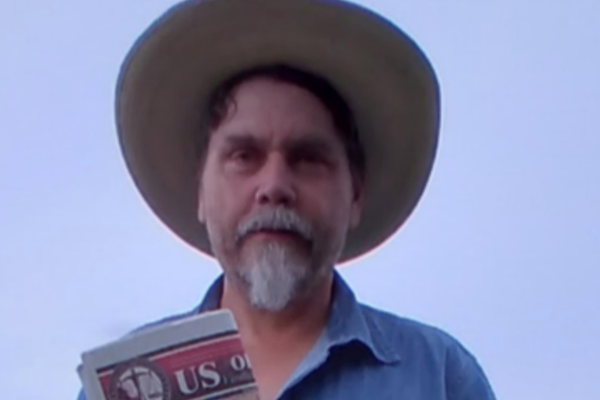
The wife of a prison guard who killed himself at work in 2018 claims he faced sustained bullying from colleagues for reporting on another guard who allegedly kicked a handcuffed prisoner in the head, telling a coronial inquest, “you don’t dog on a blue shirt”.
William “Bill” Maxwell was found dead at Dame Phyllis Frost Centre, a maximum security women’s prison in outer Melbourne, in March 2018, having taken his own life.
His wife, Tracy Kendall, told a coronial inquest on Monday that the 53-year-old was a “bubbly” and “well-liked” man when they met as co-workers at the Melbourne Assessment Prison (MAP) in 2014, but that he had become “sad and gloomy” after he was ostracised by colleagues for filing a report about a fellow prison guard.
The report concerned an alleged incident in December 2016, when Maxwell was working in the prison’s emergency response group.
The inquest heard that a prisoner head-butted a guard, Prem Chand, who then grabbed him by the neck. Chand and Maxwell then restrained the prisoner and took him to an observation cell.
Three other members of the prison’s emergency response team were present. Counsel assisting, Dani Lord, told the inquest that Chand was told to leave the holding cell due to his “agitated state” but re-entered a short time later and kicked the prisoner in the head while he was handcuffed and restrained by Maxwell.
Maxwell’s original report of the incident did not mention an officer kicking the prisoner. He amended it to say an unnamed guard had kicked the prisoner in the head, before amending it again five days later to name Chand.
Another prison officer also reported the incident, but said Chand had kicked the prisoner in the legs. Chand was fired in 2017 following an internal investigation.
Kendall, who has worked at MAP since 2010, said she was concerned about Maxwell naming another guard in his report because “you don’t write up another officer, ever”.
“On my squad I was told that you don’t dog on a blue shirt, you don’t write a blue shirt up,” she said.
Kendall said not reporting on fellow prison guards, and bullying those who do not toe the line, was part of the workplace culture. She said it was common practice for guards to share reports about critical incidents to make sure they match, or “swap their statements and just change a few words”.
“You are supposed to have everyone’s back,” she said.
Kendall told the inquest that soon after he filed the report, Maxwell was isolated and excluded by other guards. He had been working in the reception area of the prison, where prisoners are admitted and discharged, with a senior prison guard he liked and respected. That guard stopped speaking to him after he filed his report.
“Bill said, ‘What’s going on, everyone down here is really cold to me, you’re not speaking to me, what’s going on?’ And he said, ‘You should never have written up a blue shirt, you don’t dob on a blue shirt’.”
He was spoken about in a “derogatory, ostracising” way by other prison guards, Kendall said. “[They said] that he was a dog,” she said. “They refer to the prisoners as a dog so therefore if they refer to you as a dog, you’re just like the prisoners.”
Maxwell stopped being invited out to drinks with his team and would wait outside the locker room because he was “intimidated” by other guards, Kendall said. He started drinking and chain smoking, and withdrawing at home.
“He was very well-liked prior to all of this because he was quite a calming influence to the prisoners,” Kendall said. “And I think at some stage there he was called a crim-lover. And you can’t be a crim-lover.”
In October 2017, shortly after he and Kendall got married, Maxwell left MAP to work as a senior prison guard at Dame Phyllis Frost Centre. She said the move was initially good for Maxwell but he was isolated in his role and began to feel excluded again.
“He was concerned that people at Dame Phyllis Frost knew what happened at MAP and that news travels fast and that he would be ostracised for it,” she said.
On 24 March 2018, Kendall asked Maxwell to leave the house and stay elsewhere for a few days because she was concerned about his behaviour. He was found dead in the gym of the Dame Phyllis Frost Centre at 7.40am on 27 March, having taken his own life.
Kendall dismissed a suggestion that Maxwell had been enjoying his new role and was upset because they were taking a few days apart.
She acknowledged the Department of Corrections had, since Maxwell’s death, sent some messages to staff about respectful behaviour, workplace bullying and mental health, but said the culture remained unchanged.
“There were a couple of posters stuck up on walls and that was it,” she said.
The inquest continues.
Crisis support services can be reached 24 hours a day: Lifeline 13 11 14; Suicide Call Back Service 1300 659 467; Kids Helpline 1800 55 1800; MensLine Australia 1300 78 99 78; Beyond Blue 1300 22 4636







